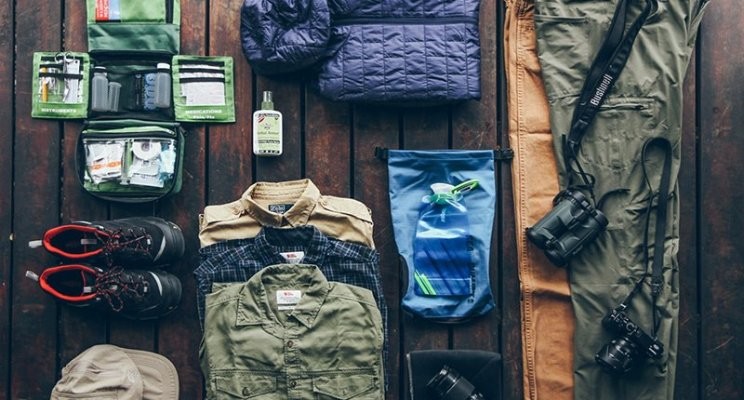1. Travel Documents:
Passport and visa (if required): Ensure your passport is valid for at least six months beyond your intended departure date and check visa requirements for each country you plan to visit.
Travel insurance details: Have comprehensive travel insurance to cover medical emergencies, trip cancellations, and other unforeseen events.
Flight tickets: Keep both physical and digital copies of your flight details. Vaccination certificates (as required): Check and fulfill any required vaccinations for the countries you'll be visiting.
2. Clothing:
Lightweight, breathable clothing (long sleeves and pants): Protect against sun exposure and mosquitoes, especially in areas prone to diseases like malaria.
Comfortable walking shoes and/or hiking boots: Suitable for various terrains and activities.
Swimwear: If your itinerary includes coastal areas or water-related activities.
Hat or cap for sun protection: Shield yourself from the sun's rays.
Jacket or sweater for cooler evenings: Evenings might get chilly, depending on the region and time of year.
Rain jacket or poncho: Be prepared for unexpected rain showers.
3. Health and Personal Care:
Prescription medications: Bring an ample supply and carry a copy of your prescription.
Basic first aid kit: Include bandages, antiseptic, pain relievers, and any necessary personal medications.
Insect repellent: Guard against insect bites and diseases.
Sunscreen with a high SPF: Protect your skin from the strong African sun.
Personal hygiene items: Toothbrush, toothpaste, and other personal care items.
4. Electronics:
Travel adapter and converters: Ensure your electronic devices can be used in different plug configurations.
Camera and/or smartphone: Capture memories of your journey.
Power bank: Keep your devices charged on the go.
Binoculars: Especially important for wildlife viewing on safaris.
5. Travel Gear:
Backpack or daypack: Convenient for day trips and carrying essentials.
Lightweight and durable luggage: Easily manageable and sturdy for various modes of transportation.
Money belt or neck pouch: Safeguard your valuables.
Water bottle and water purification tablets: Stay hydrated, and purify water if necessary.
6. Safety and Navigation:
Flashlight or headlamp: Essential for areas with limited lighting.
Pocketknife or multi-tool: Useful for various situations.
Compass and map: Handy for navigation in unfamiliar areas.
7. Optional Items:
Binoculars for wildlife viewing: Enhance your safari experience.
Travel pillow and sleep mask: Improve comfort during long journeys.
Journal and pen: Document your experiences.
Snorkeling gear: If visiting coastal areas with opportunities for snorkeling.
8. Clothing for Safari:
Neutral-colored clothing: Blend into the environment and avoid attracting wildlife attention.
Wide-brimmed hat: Provide shade and sun protection.
Safari-appropriate clothing: Follow recommendations from your tour operator for specific activities.
Remember to research specific weather conditions for the regions you'll be visiting, and tailor your packing list accordingly. Always consult with your tour operator or travel guides for destination-specific recommendations.



3 Comments
Leave a Reply
Your email address will not be published. Required fields are marked *